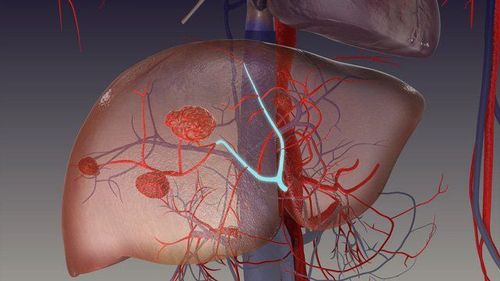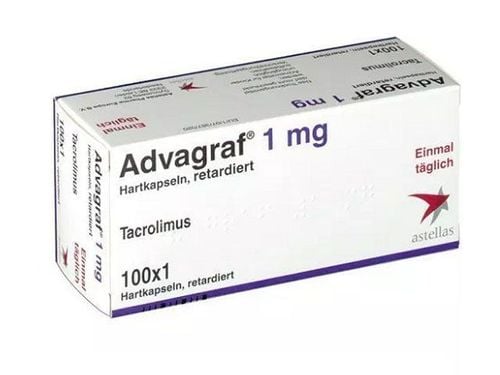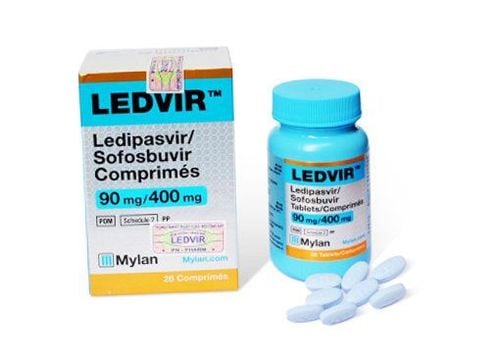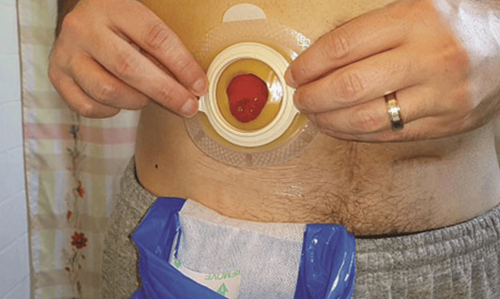This is an automatically translated article.
Hemangiomas are the most common benign liver tumors of the liver. 5-7% of healthy people may develop hemangiomas in the liver. However, going undiagnosed and untreated can lead to some dangerous complications.1. What methods are used to treat liver hemangiomas?
If a hemangioma in the liver is detected, the patient is often in a worried mood and seeks treatment. However, hemangiomas in the liver usually do not need treatment, this is a benign tumor, rarely causing malignancy. So far, there is no drug that works to reduce or reduce the size of the tumor. Treatment only when the hemangioma enlarges rapidly or is very large, it can be treated to prevent the hemangioma burst causing life-threatening bleeding or the large tumor causing pain due to compression, but this complication is very rare. Treatment of hemangiomas in the liver may include surgery to remove part of the liver with the tumor or can embolize the artery that feeds the mass, such as burning, radiation therapy...If your hemangioma is small and not causing any symptoms or symptoms, you will not need treatment. In most cases, a liver hemangioma will never develop and will never cause problems. Your doctor may schedule follow-up exams to check for liver tumors periodically for growth if the liver tumor is large.
Treatment for liver tumors depends on the location and size of the tumor, whether you have more than one liver tumor, your overall health, and your preferences.

Điều trị u gan bằng phương pháp thắt động mạch gan để ngăn chặn lưu lượng máu đến u gan
Surgical removal of the liver tumor. Most liver hemangiomas do not require treatment and only need monitoring. If the liver tumor can easily separate from the liver, your doctor may recommend surgery to remove the mass. A hemangioma may need to be surgically removed if it is too large and causing symptoms. If it causes significant pain or damage to part of the liver, your doctor may decide to remove the entire affected liver. Surgical removal of part of the liver, including hemangiomas. In some cases, the surgeon may need to remove part of your liver along with the hemangioma. Ligation of the hepatic artery to block blood flow to the liver tumor. Without a blood supply, liver tumors may stop growing or shrink. Two ways to stop blood flow are to tie up the main artery (hepatic artery ligation) or inject drugs into the artery to block it (arterial embolism). Healthy liver tissue is unharmed because it can draw blood from other nearby vessels. Arterial embolism. In other cases, the doctor may decide to inject a drug into the hemangioma to block the blood supply and destroy the tumor. This is called arterial embolization. Liver transplant surgery. In the unlikely event that you have a large hemangioma or multiple hemangiomas that cannot be treated with other measures, your doctor may recommend surgically removing your liver and replacing it with a donor liver. In very rare situations, a liver transplant may be required. During this process, the damaged liver is replaced with a healthy donor liver. This method is only really necessary if the hemangioma is extremely large or if many hemangiomas do not respond to other treatments. Radiotherapy. Radiation therapy uses powerful beams of energy, such as X-rays, to damage the cells of a liver tumor. This treatment is rarely used because safer and more effective treatments are available.
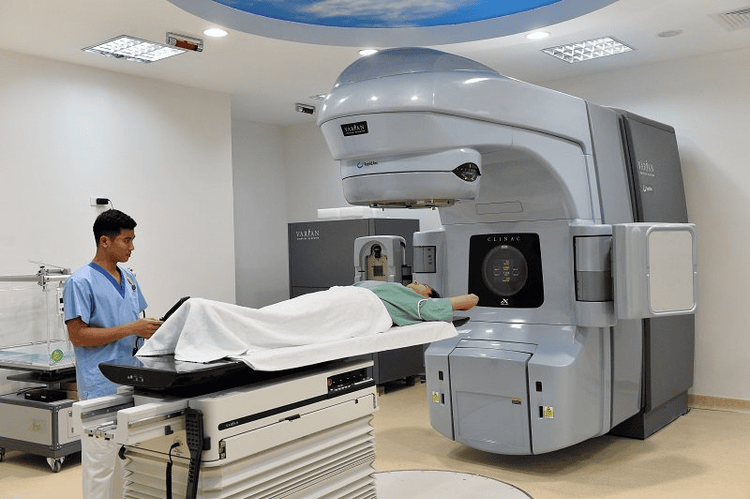
Điều trị u gan bằng phương pháp xạ trị nhằm giảm tối đa các tác dụng phụ khi điều trị
2. What lifestyle habits help you manage liver hemangiomas?
The following lifestyle and home remedies can help you deal with liver hemangiomas:
Liver hemangiomas rarely cause complications. However, a hemangioma can cause problems if its size increases. Pay attention to any symptoms caused by an enlarged hemangioma such as nausea, vomiting, and persistent pain in your right upper abdomen. Liver care is important. Limit alcohol intake, maintain a healthy weight and quit smoking if you smoke. Lifestyle changes can reduce your risk of developing other more serious liver conditions.
Please dial HOTLINE for more information or register for an appointment HERE. Download MyVinmec app to make appointments faster and to manage your bookings easily.
Article referenced source: Mayoclinic.org




